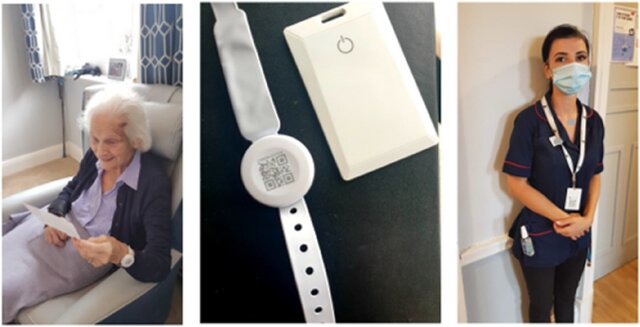Posted on
28 June 2025
Read time
1 minute

Implementing and embedding new technology in care homes can be difficult. Technology must address a specific need identified by residents, families and care home staff, and be able to be used alongside established ways of working in services which are often very stretched.
This study, led by colleagues at the University of Leeds with input from ACHA Professor Adam Gordon, explored the use of bluetooth-enabled wearables for care home staff and residents during the COVID-19 pandemic. These were designed to track resident and staff movements so that the spread of COVID through care home settings could be understood. This was the first time such technology had been deployed in a UK care home setting.
It found that the technology added burden to the daily lives of care home staff, was associated with privacy concerns and that the bluetooth wearables were often lost or damaged by residents (and also by staff, although less often).
It shows that the technology could work to track movements in care homes but that implementing such technologies faced substantial challenges in care homes – particularly in a pandemic context when teams were already stretched. The team did not recommend a full randomised controlled trial of the technology.
There were important lessons for how we work with care home staff and residents to design and implement technologies in the future. You can read the article in full here.





